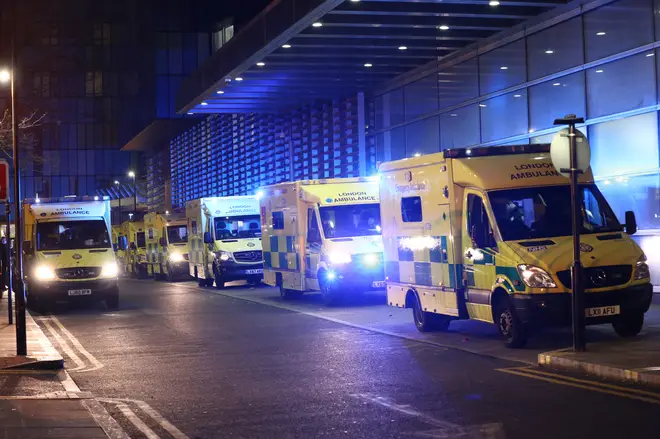
Clive Bull 1am - 4am
30 December 2020, 16:12 | Updated: 30 December 2020, 16:38

The UK has recorded a further 50,023 cases and 981 deaths in the last 24 hours, according to the latest official figures.
This is the highest death toll since 24 April and is a significant increase from Tuesday, when 414 deaths were recorded within 28 days of a positive test.
It is also the second day that the UK has recorded over 50,000 cases in a single day, after a record high of 53,135 cases on Tuesday.
The latest figures come as hospitals across the country face significant pressures due to the number of Covid-19 patients.
There were 23,771 Covid-19 patients in UK hospitals on Monday, the latest date for which data is available. This is greater than the peak in the April.
Read more: Millions more plunged into Tier 4 as hospitals see surge of Covid-19 patients
Explained: Which new areas will enter Tier 4 in England?

Millions more plunged into Tier 4 as hospitals see surge of Covid-19 patients
Millions more people will be plunged into Tier 4 'Stay at Home' restrictions at 00.01 on New Year's Eve, Health Secretary Matt Hancock announced on Wednesday.
The latest announcement means an additional 20 million people will be in almost total lockdown from one minute past midnight, taking the total number to 44 million - 78% of England's population.
It comes as hospitals across the country report seeing increasing numbers of Covid-19 patients, with Essex declaring a "major incident" over the decreasing number of beds available.
Read more: London critical care patients 'could be moved to Yorkshire', HSJ reports
Announcing the latest measures, Health Secretary Matt Hancock said the "sharply rising cases and the hospitalisations" that the country is seeing "demonstrate the need to act where the virus is spreading."
Mr Hancock told MPs that the majority of new cases recorded yesterday "are believed to be the new variant".
"Unfortunately, this new variant is now spreading across most of England and cases are doubling fast," he added.
Read more: What time is Boris Johnson's Downing Street press conference today?
Read more: Covid-19: Scientists call for 'immediate' national lockdown

'We will be out of this by Spring,' Matt Hancock tells LBC
In more positive news, the UK's medical regulator have given the go-ahead to the Oxford-AstraZeneca vaccine.
The jab, which has been described as a "game changer", was given the green light by the Medicines and Healthcare products Regulatory Agency (MHRA).
The UK has ordered 100 million doses of the vaccine - enough to vaccinate 50 million people.
Read more: Matt Hancock: 'We will be out of this by spring' after Oxford Covid vaccine approval
In recognition of the scale of the challenge the country faces, government regulators have announced a major change to the vaccine rollout strategy.
The initial plan for those having the Pfizer jab was to have the second dose 21 days after the first, but now guidance says the secondary injection can be given up to 12 weeks after the first.
This will allow more people to receive the first dose as quickly as possible, giving them some immunity and thereby decreasing the demand on the NHS.
Experts have determined the first dose of the Oxford vaccine is 70% effective 22 days after the first dose, and recommends the interval between the first and second should be between four and 12 weeks.